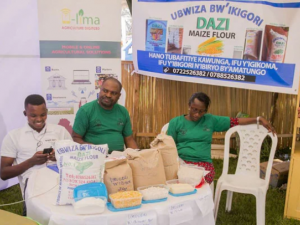
Rwanda plans life beyond Covid-19 with food reserves
Rwanda has drawn up a recovery plan that includes storing up an equivalent of maize and beans for 10 per cent of the population at 2,500 kilocalories per person per day, in a bid to ensure strong food reserves after the pandemic is defeated.
“This shall be achieved by increasing resources for National Strategic Reserves to stock food, by supporting the districts to establish their own district food reserves and mobilising farmers to have community stores as well as storage facilities at the household level,” the Economic Recovery Plan says.
A fund was also established to support businesses and small, medium enterprises in the sectors hit hardest by the pandemic.
These Covid-19-related interventions are estimated to cost Rwf882 billion ($934 million) over the two fiscal years 2019/20 and 2020/21, equivalent to an increase in fiscal deficit of about 4.4 per cent of GDP on average per year according to government.
This accounts for health-related spending, social protection, support to state-owned enterprises, and the government’s contribution to the Economic Recovery Fund, and other measures to mitigate the economic consequences of Covid-19.
This comes as Rwanda has indicated a successful slowing of coronavirus infections. The country registered only one positive case of coronavirus between Monday and Wednesday last week.
Consequently, the country is pushing towards full re-opening of the economy.
The highest number this week was reported on Sunday — with four positive coronavirus infections — which was also way below the average cases confirmed in the previous week.
“This is positive news. When we test and find a few people infected, it is a good indicator that the virus has been contained and that we probably have a few cases yet to be identified,” Dr Sabin Nsanzimana, the Director-General of Rwanda Biomedical Centre told The EastAfrican.
“It is too early to speak on opening up the economy fully because there are so many other indicators to be considered before further action is taken. The best we can do is continue mass testing,” Dr Nsanzimana added.
